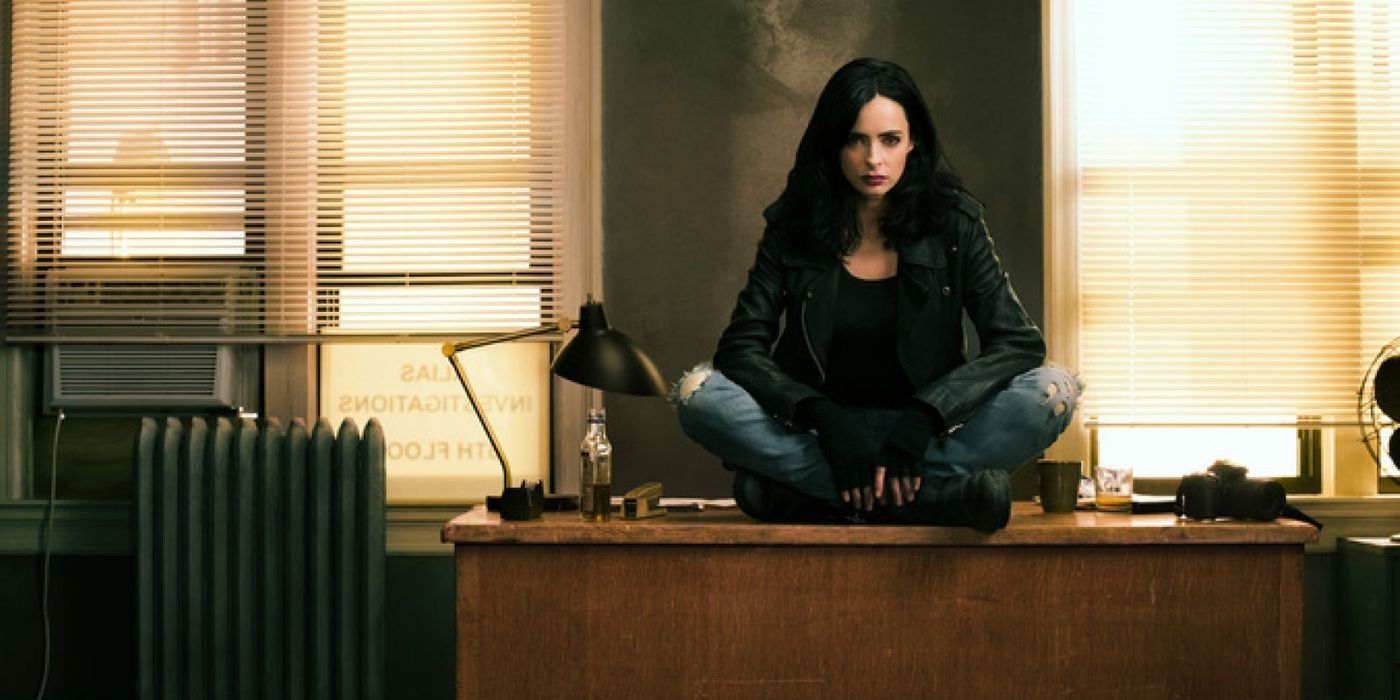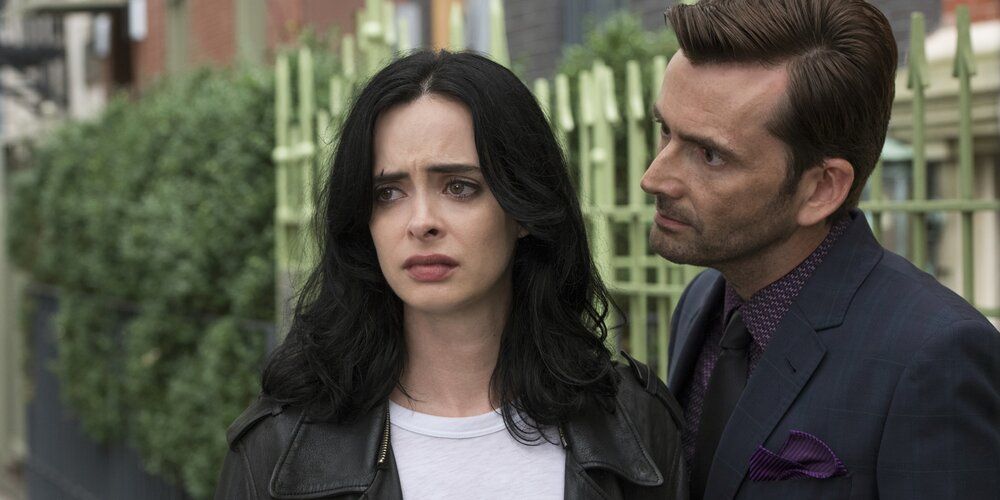Jessica Jones is one of Marvel's more powerful superheroes, but the origins of her powers differ slightly between the comics and the Netflix show. In both iterations, her abilities include super strength, accelerated healing and very short-range flight, and she first gained them after a catastrophic car crash, but exactly what gave her those abilities was altered for the screen.
In the comics, Jessica (born Jessica Campbell) attends Midtown High with Peter Parker and even has a crush on him. Her father also works for Tony Stark. As they're driving back from a trip to Disney World, the Campbell family car crashes into a vehicle containing radioactive chemicals, and she is the only survivor. After waking from a months-long coma, Jessica is adopted by the Joneses. She realizes that being exposed to those chemicals gave her the aforementioned superpowers and later starts to use them for good.
In the television show, Jessica (played by Elizabeth Cappuccino as a teenager and Krysten Ritter as an adult), her parents Brian and Alisa Jones, and her brother Phillip are in a straightforward car crash. Jessica believes herself to be the only survivor. She wakes to learn that she's been taken in by Dorothy Walker (Rebecca De Mornay) as a form of promotion for her daughter Trish's television show.
She discovered her new powers when, while hiding in the bathroom during one of Dorothy and Trish's explosive arguments, she accidentally broke the marble sink, then lifted it over her head. Trish saw her with the broken sink and realized that Jessica had powers, but she agreed to keep this a secret (as Jessica would keep Dorothy's abusive behavior a secret). She later used her powers to explicitly threaten Dorothy, who had forced Trish to purge so she would lose weight, and from then on Jessica and Trish were close friends. Trish was always supportive of and enthusiastic about Jessica's powers, though Jessica was hesitant to make them widely known.
Jessica's twenties are tumultuous: she drops out of college and moves in with her bartender boyfriend, who eventually gets murdered, she shoplifts, she works a series of dead-end jobs, and she has to witness Trish's battle with addiction. Despite all of this Trish is insistent that Jessica could be a superhero, between her superpowers and her investigative skills, and she even designs a costume for Jessica (based on her original comics costume). Jessica is less thrilled about the prospect of it all, but she does use her powers for good when the opportunity arises.
Kilgrave (David Tennant) witnesses her using her powers and, fascinated, uses his own mind-control abilities on her for months on end, sexually abusing her and ultimately forcing her to commit murder. She's able to break free of his control as a result of this trauma and soon distances herself from everyone in her life, including Trish. Soon after, she begins to operate as a private investigator.
After defeating and killing Kilgrave, then teaming up with the Defenders, Jessica gets a reputation as a vigilante hero. She expresses frustration that Trish has talked about her on her radio show, but Trish drops a strange bit of information. Apparently, Jessica didn't get assigned a proper hospital bed until twenty days after the car accident. This is because the organization IGH paid for Jessica's medical bills. Trish thinks that IGH might have experimented on Jessica and given her powers, so she suggests that Jessica should look into this to receive closure.
There was some speculation from fans that the name IGH was inspired by the drug MGH (Mutant Growth Hormone) from the comics. After all, at the time the Marvel Cinematic Universe wasn't allowed to say "mutants," so the "I" might have stood for "Inhuman." The mysterious organization operated under the name Industrial Garments & Handling, as a means to cover up what it was truly doing.
Jessica ultimately learns that IGH had, in fact, intervened after her accident. She'd actually died on the operating table, and they revived her. The IGH doctor that Jessica confronts claims that Jessica's superpowers were a side effect as the genome editing processes they used to heal her activated and enhanced parts of her DNA. It's a bit of a stretch from her comic origins, but one that helps to make Jessica's powers stand out among other heroes while setting up a mystery for the character to unweave.



